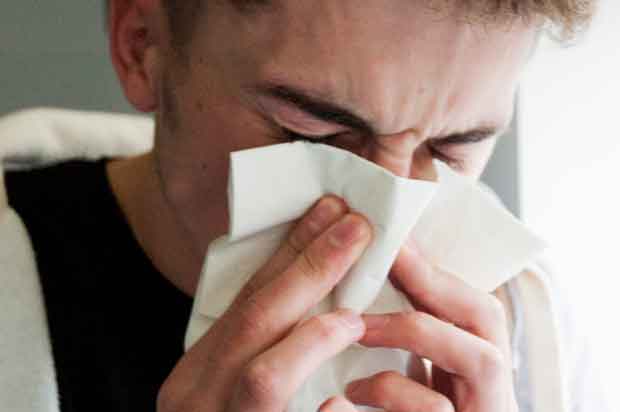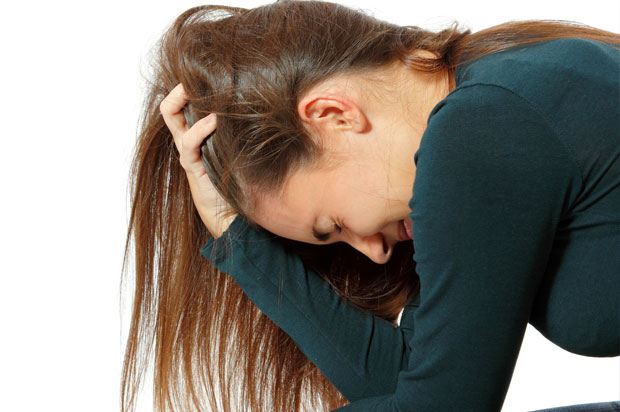Cold and flu recovery

Do I have a cold, Covid or the flu?
Aah-choo! Want to know how to get over a cold quickly, or how to recover from the flu? No one enjoys being bedridden with colds, Covid or flu, so fight them off with our guide to recovering from flu fatigue.
Do I have a cold, Covid or the flu?
Catching Covid or flu normally feels worse than most colds, and they’re all caused by different viruses.
As we all know by now, Covid can have all kinds of weird and wonderful symptoms, from loss of smell to ‘Covid toe’. These could also change as the virus mutates, but the best way to work out whether you have Covid rather than the common cold or flu is to send off for a test online.
Colds tend to go away without much fuss after a few days, whereas both Covid and flu can cause post viral fatigue. Unfortunately the world of medicine is still working out how to best treat people who have experienced longer term health problems from viral infections, but if you’re experiencing aches and pains along with fatigue and other symptoms weeks after you’ve got over your initial infection, visiting your local GP is always your best bet.
How to tell if you have a cold, the flu or covid
Fading fast?
A cold can take a couple of days to kick in, while flu may develop so fast you could even be bed-bound within an hour of feeling a bit under the weather. The incubation period (the period from being infected to getting symptoms) for Omicron — the most recent strain of coronavirus — is around three days, with the person often becoming infectious a day or two before symptoms emerge.
Raging temperature?
Very unusual in a cold sufferer, but standard issue for flu or Covid, with temperatures over 100 degrees Fahrenheit (37.7 Degrees Celsius), sometimes lasting several days.
Headache?
Not a big cold feature, but the headache that can accompany flu and Covid could force you to lie down with the lights off for some time.
Muscular aches?
A cold will leave you feeling fragile, but flu and Covid can floor you physically, complete with shaking chills, even chest pains. After that kind of battering, you may not feel completely chipper for a couple of weeks.
Total exhaustion?
Not with a cold, so don’t fake it. When it comes to flu symptoms or Covid, you could be so wiped out that all you can do is lie in bed and hold on tight until it’s over.
Stuffy nose/sore throat?
Almost standard issue with colds, but only an occasional flu feature. A runny nose and sore throat has been a common symptom with most Covid strains (particularly Omicron) which for many people feels more like a cold than the flu.
Vomiting?
Common with many strains of flu and can happen with Covid, but hardly ever seen with a cold unless complications set in.
How to get over a cold quickly
Ditch the antibiotics: By all means consult your doctor if the cold is associated with another infection, but don’t go thinking they can give you something that will magically get rid of a cold. Colds are viruses and antibiotics don’t work on viruses.
Get as much rest as you can: If you only have a cold, and not flu, it’s unlikely that you’ll get away with cancelling everything and curling up in bed for the week. Even so, the more rest you can afford yourself the quicker your recovery should be. Sleep is your body’s downtime, after all, and it uses this opportunity to run system checks and make essential repairs.
Inhale: Breathe in steam, from a hot shower, a bath, or a basin of hot (but not boiling) water. This can ease blocked or stuffy noses and even a sore throat. Adding a few inhalant drops such as menthol crystals or eucalyptus oil can also help, available from your local pharmacist.
Keep your strength up: Eat well, and be sure to drink plenty of fluids. Illness can rob your body of essential nutrients and vitamins; something you can effectively restore with a decent diet.
Make friends with the pharmacist: They can advise you what over-the-counter products are most likely to help treat a cold, and get you on your feet when it really matters.
Natural cold recovery: If you feel the early signs of a cold, start taking home remedies such as echinacea drops or capsules immediately, which should help to dispatch white blood cells to fight the infection. If you’re too late for that, make sure you are dosed up with plenty of vitamin C and drink hot water infused with slices of fresh ginger. Garlic has antifungal, antibiotic, antiviral and antibacterial properties that help the immune system to fight infection and it is excellent at boosting the immune system, so consume as much as possible (it’s ok to be antisocial when you are ill!).
Flu recovery
Recovering from flu fatigue or Covid tends to be a little trickier than a generic cold, but with a bit of self care and plenty of rest you’ll get back to full power eventually.
There are different strengths of flu: The most common is least serious, even if it leaves you feeling like death warmed up. Expect to be floored for three to five days (followed by a few weeks of fatigue). Stronger flu strains tend to break out every few years, so see your GP if your symptoms are particularly acute. Stronger forms of flu can keep you bedridden for around seven days, and make complications more likely. All of the above goes for Covid, too.
Ditch the antibiotics: Sorry, but they’re ineffective against flu and Covid, plus they weaken your immune system in the long term and should only be taken as a last resort. By all means consult your doctor if the symptoms are unusually severe or if there appear to be complications (i.e. chest pains, rash, or stiff neck).
Get plenty of sleep: Often this is all you’ll want to do, and you’d be wise to simply go with it. Just make sure someone’s checking in every now and again to make sure you’re OK.
Drink plenty of water: An illness such as flu or Covid can leave your fluid levels low, so be sure to have a ready supply of water, or a soft drink of your choice, within easy reach. Eat when you can, too.
Pain relievers are at hand: Muscular ache and a high temperature can be eased by popping a painkiller such as paracetamol or aspirin (always read the manufacturer’s guidelines first). Anti-inflammatories can also provide relief from aches caused by flu or Covid. If you’re taking flu remedies at the same time, however, make sure you’re not overloading on paracetamol or ibuprofen.
Rest up: Flu and Covid can leave you feeling exceptionally run down, and it’s important not to fight this if you want a swift recovery. So avoid strenuous activity until your strength is back up to speed, because you could find that it floors you.
Natural flu recovery: Follow the same directions for beating colds naturally (above).
See your GP if symptoms persist: Flu that lasts more than a week to ten days deserves some time with your doctor, but don’t deny yourself an appointment at any stage if you’re concerned for your health. Covid can take longer to recover from on average, but the same applies.
Flu and Covid jabs are available to avoid future infections: When it comes to flu, these injections tend to be mainly given to older people, or those with severe asthma or weaker immune systems. See your doctor if you’re particularly concerned.
That’s all of our tips for how to recover from flu or a cold. If you’ve got some of your own you’d like to share, head over to our discussion boards and let us know. You find out more about other common body problems in the rest of our articles here.
Next Steps
- Chat about this subject on our Discussion Boards.
By The Mix Staff
Updated on 09-Nov-2022
No featured article














